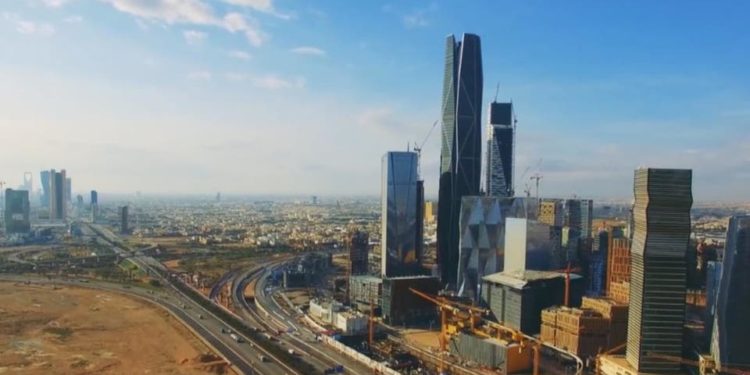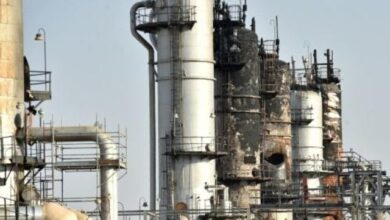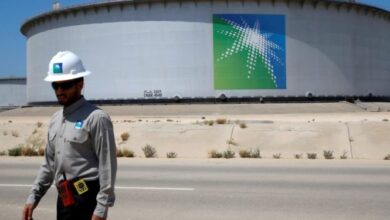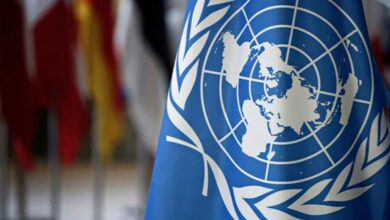Unprecedented cracking procedures for ministries in the Kingdom

Leaks revealed that the Saudi regime asked government departments to submit proposals to cut their budgets by about a third, in new austerity steps to counter the sharp drop in oil prices.
Reuters news agency reported that the request was sent more than a week ago, due to concerns about the impact of the Coronavirus on crude markets, and before the collapse of the production cut agreement between OPEC and its allies on Friday.
One source said that when sending budget requests, Saudi officials were expecting difficult negotiations with Russia regarding the need to deepen production cuts in order to stabilize markets, and Moscow rejected the proposal to ignite a price war in the oil market between the two countries and to plunging crude prices.
Another source emphasized that “the oil market was really low due to the impact of the Coronavirus on demand in China, and besides that, there were contacts at the (Saudi) sovereign level and the Russians were not positive.”
The Ministry of Finance has sent directives to government departments to submit proposals to cut between 20 and 30 percent (about a third) in their budgets for 2020.
One of the sources said that the Ministry of Foreign Affairs has already implemented a 20 percent reduction, adding that the cuts will not affect wages but rather projects that can be deferred and contracts that have not yet been awarded.
The International Monetary Fund said that Riyadh needs a price of $80 a barrel to set the 2020 budget, which has an estimated deficit of 187 billion riyals ($50 billion), which is the deficit recorded for the sixth year in a row, indicating an increased resort to borrowing and withdrawing from the cash reserve for spending. Stimulating the sluggish economy due to lower oil prices.
The public debt of the Kingdom amounted to 678 billion riyals ($181 billion) until the end of 2019, constituting 24% of the GDP.
The Kingdom’s economy suffers from a severe decline in the rates of growth due to the sharp contraction of the oil sector, the failure of the policies of the Saudi regime and the corruption of its symbols.
Official data showed that the Kingdom’s economy grew by 0.3% in the year 2019, which was below expectations, due to the sharp contraction of the oil sector.
The non-oil sector grew 3.3 percent in real terms last year, according to figures released by the General Authority for Statistics, the highest rate since 2014.
The gross domestic product came less than the 0.9 percent level officially expected by Saudi Arabia, while the oil sector declined 3.6 percent, and the authority said that expansion in the non-oil sector was mainly driven by growth in the private sector, which reached 3.8 percent.
The data showed Saudi exports fell 10.4 percent year on year, due to a 14 percent drop in oil exports.
In 2019, the financial, insurance, corporate services, retail, restaurants, and hotel sectors were among the activities that witnessed the highest growth rate, in line with the government’s interest in investing in areas such as tourism and entertainment, and the energy and industrial sectors contracted.
The governor of the Saudi Arabian Monetary Agency (the Central Bank), Ahmed Al-Khulaifi, said last month that the non-oil sector will support the Kingdom’s economic growth this year, despite its suffering that may be exacerbated by the spread of the Coronavirus globally.
The Kingdom decided last week to suspend entry of foreigners for Umrah purposes, visit the Prophet’s Mosque, and hold tourist visas from at least 25 countries where the emerging Coronavirus appeared.
Hajj and Umrah are an important source of revenue for the Kingdom, and they are the backbone of plans to increase visitor numbers within the ambitious economic reform program of Crown Prince Mohammed bin Salman.
Jason Toffey, chief economist of emerging markets at Capital Economics, said the effects of travel restrictions on the Saudi economy may be “significant”, as the tourism sector contributes 10 percent of Saudi gross domestic product, according to the World Travel and Tourism Council.
He added, “The blow that the economy might be exposed to due to these travel restrictions, coupled with the constant threat of new oil production cuts, means that our expectations… are very risky.”
This comes as Gulf stock exchanges incurred heavy losses of nearly $76 billion during today’s trading, which analysts described as a “black Sunday”, as indicators in all markets collapsed and investors scrambled towards random selling, in an attempt to flee with their money, fearing the expansion of the scope the damage caused by the new Coronavirus after its rapid spread in the Gulf countries.
Trading screens in the Kingdom, UAE, Bahrain, Sultanate of Oman and Kuwait became clear in red, as the Kuwait Stock Exchange suffered the largest losses in terms of points, after its first index fell by 10.98 percent, with NBK shares declining by 14.5 percent.
The general index of the Kingdom’s market fell 3.71%, the general index of the Dubai Financial Market decreased by 4.49%, Abu Dhabi 3.62%, Bahrain 3.37%, and the Muscat Market 1.2%.
The Kingdom’s stock exchange recorded the largest losses in terms of market value, which incurred 214 billion riyals ($57 billion), as the market value of listed stocks fell to 8.21 trillion riyals, compared to 8.43 billion riyals in the previous session, last Thursday.
A report prepared by the Kuwait-based International Investment Company showed that the losses of Gulf stock exchanges last February amounted to about $150 billion, the largest share of which was for the Kingdom’s market at about $82 billion.





